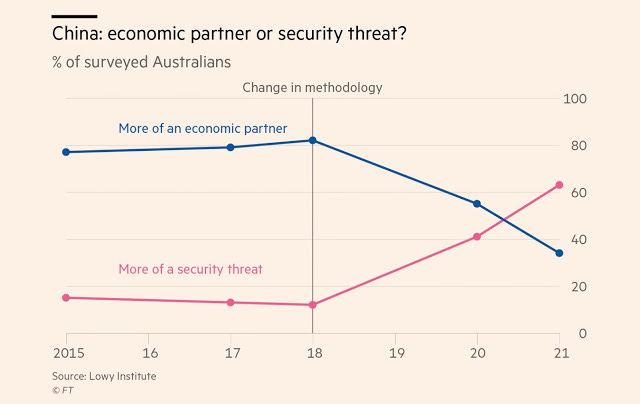Watching our great Anglosphere partner New Zealand continue to debase herself in the face of the communist Chinese government should be as frustrating and disappointing to all free, liberty minded people as it is to me.
Sophie Richardson puts the New Zealand government on report;
New Zealand has signed on to a number of key initiatives led by other countries criticising the Chinese government’s ... Yet these remarks tend to be in the passive voice, sending a mixed message of wanting to criticise without irking Beijing. That squeamishness is reflected in other recent policies and remarks, including Labour’s peculiar position in the parliamentary debate over whether to use the term genocide to refer to Beijing’s policies towards Uyghurs, ...
The government’s decision not to join a January 10 statement with Five Eyes allies on arrests of democracy activists in Hong Kong, saying it had communicated its concerns bilaterally to Beijing, raised eyebrows when a few weeks later Wellington and Beijing agreed to upgrade a free trade agreement. Ardern has had to publicly defend her government against allegations that New Zealand was giving Beijing a free pass on its human rights record.
...
No New Zealand government has thoroughly confronted Chinese state and Chinese Communist Party influence in New Zealand. Former politicians, parties, universities, and companies across the country have been shown to have problematic ties to Beijing, yet there is little movement towards a broad, thorough public examination of these relationships.
In 2018, the Chinese embassy in Wellington hosted a reception for the People’s Liberation Army – a force deployed to crush peaceful speech from Tibet to Tiananmen Square – not at its own premises but at Te Papa, a public institution devoted to multiculturalism.
Human institutions often reflect, and are motivated, by the same things as the humans who run them.
Though a generalization, human actions are generally driven by the desire for four things deeply rooted in the brainstem; money, status, sex (aka social clout/influence), and resentment.
The order can change from person to person, but scratch the surface of any problem, and one of these will be right there under the surface, usually supported by the other three.
These drivers can be seasoned by other aspects of human nature, virtue and sin.
When you look at a policy being pursued that seems good from your perspective or bad, look at the four motivations. What seems to be driving it? If you are having trouble, look at the flavorings that shape the four motivators for good or bad.
Though I’m not Catholic, I’ve always held their theological work in the highest regard – especially the easily grasped portions. Let’s use those for our flavorings.
You have the Seven Heavenly Virtues, first four from classic scholarship, the last three of a more theological underpinnings; prudence, justice, temperance, courage, faith, hope, and charity.
Then you have the Seven Deadly Sins; pride, greed, wrath, envy, lust, gluttony, and sloth.
How does this help us understand New Zealand’s actions?
My take is this is mostly driven by money (economic) not so much flavored by sin, but by a lack of virtue – specifically courage. If they had more courage, it would decrease the primary desire for money, and would bring status to the front. A status bolstered by justice, hope, and charity (for the oppressed).
Poor leadership is always the result of a lack of virtue. Poor leaders are not necessarily driven by sins – though that is more common than not – but by a weakness of virtue. That “weak” in “weak leadership” is just that – leaders weak in virtue.
New Zealand’s problems are a reflection of weak leadership.
New Zealand took an opposite fork in the road from its close brother Australia when it comes to China. Will the New Zealand people catch up to the Australian view?
In their isolation and leadership, hard to say … but this has to soak in at some point. The character of the New Zealand people will be reflected in how much they accept this kind of leadership.
They need to be more like Australia and Palau and less like some backwater Duhu Fu.




